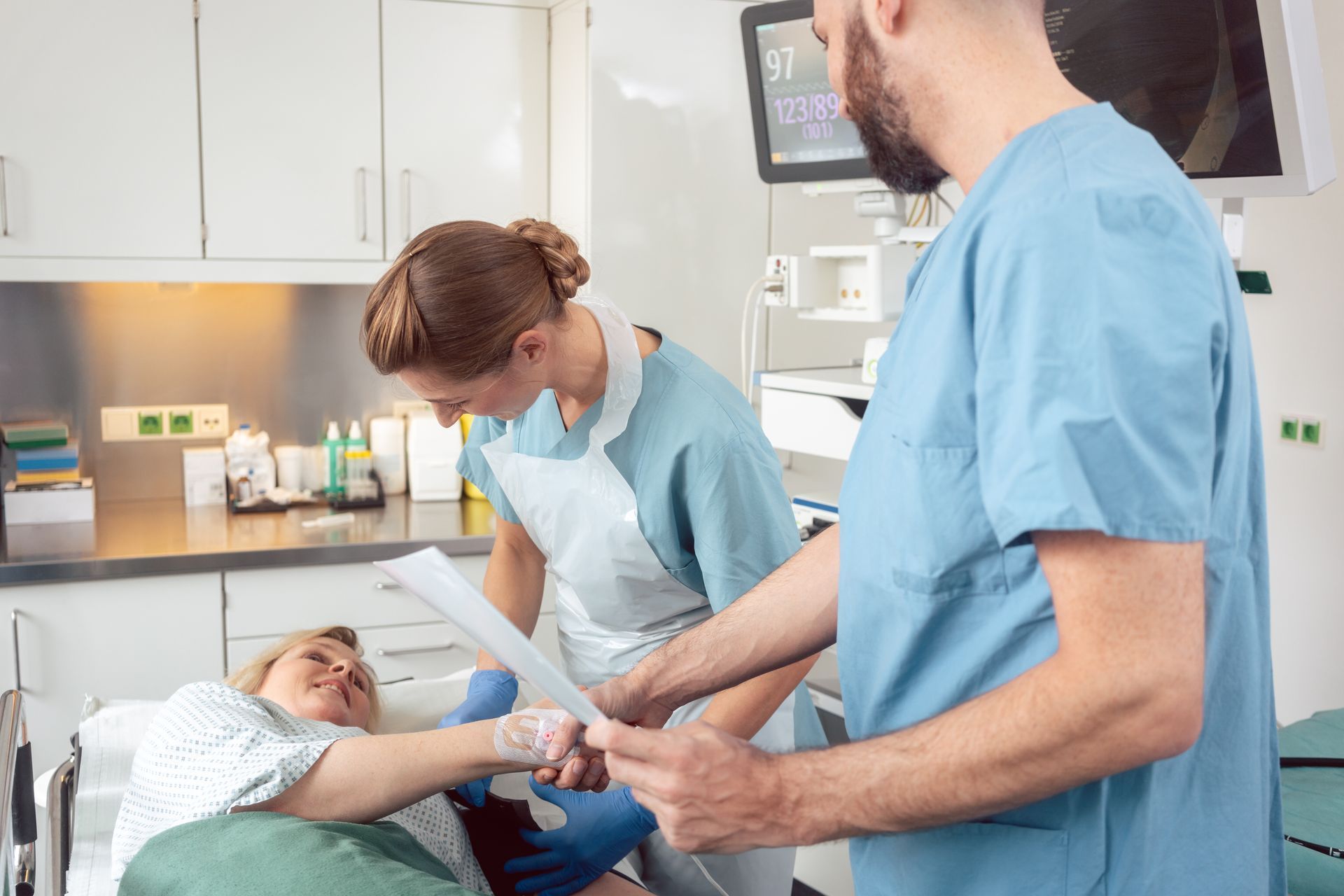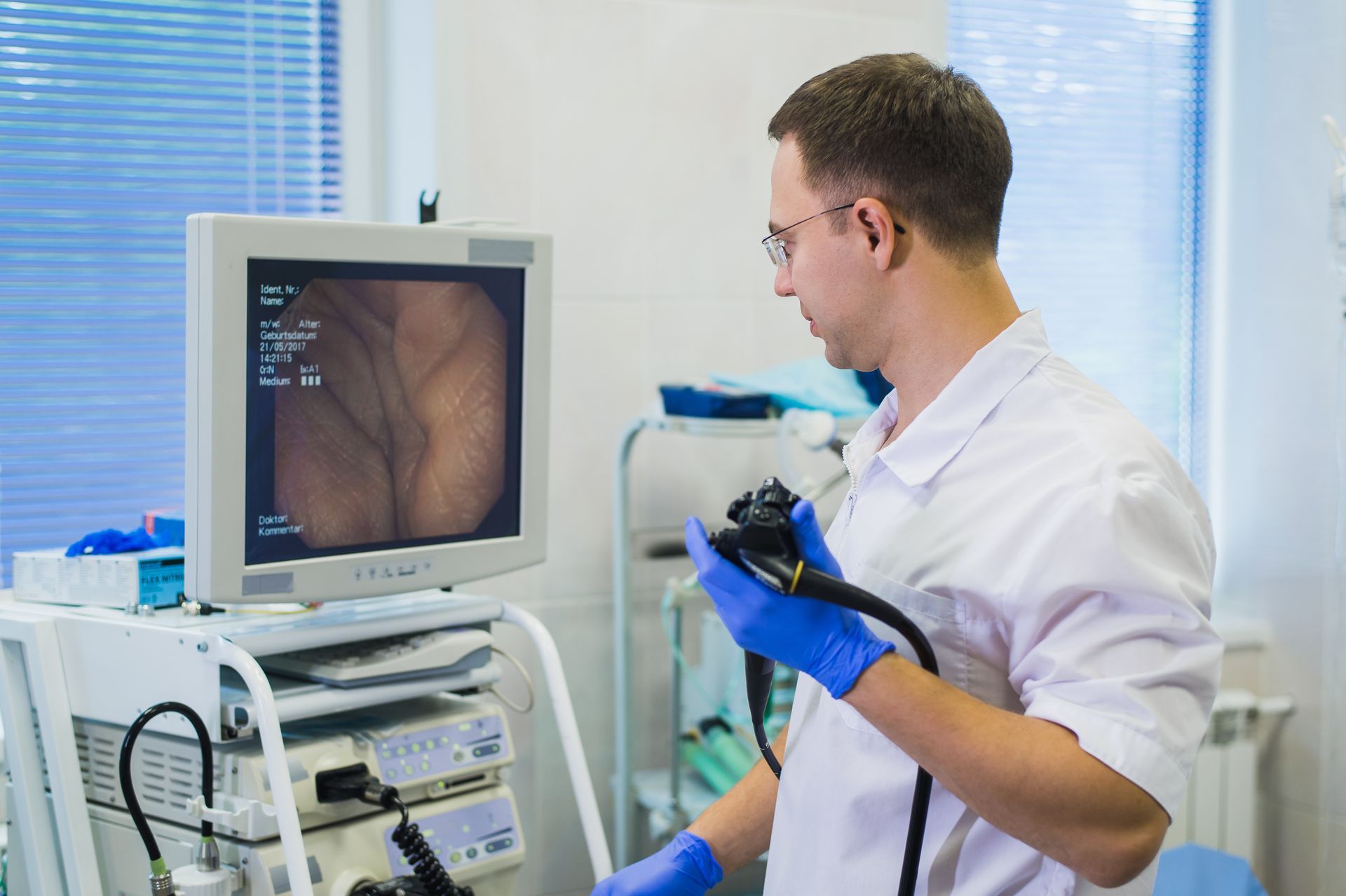COLONOSCOPIES IN NORTHWEST FLORIDA
Colonoscopies are essential, routine procedures that exam the health and condition of a patient's colon (large intestine) and the rectum. There are many health concerns that this critical part of the anatomy can cause, especially after a certain age. An annual colonoscopy should be a part of your regular health maintenance to ensure a healthy gut. Here is everything you need to know about why gastroenterologists perform colonoscopies.
HAVE QUESTIONS ABOUT COLONOSCOPIES?
-
What is a Colonoscopy?
A colonoscopy is an exam to detect abnormalities, changes, or problems in the large intestine and rectum. This procedure uses a long, flexible tube known as a colonoscope inserted into the rectum. This scope has a video camera attached that allows your gastroenterologist to view the inside of your colon. Any polyps that are detected can be removed with the same scope. Biopsies can also be performed during a colonoscopy.
-
Why are Colonoscopies Performed?
Colonoscopies allow a doctor to investigate various intestinal signs and symptoms that cause abdominal pain, bleeding, chronic diarrhea, constipation, and other digestive issues. For patients over 50, this is the most effective way to screen for colorectal cancer. This procedure is also the ideal method for discovering or checking for the recurrence of polyps. The identification and removal of these growths can also reduce the risk of colon cancer.
-
How Does a Patient Prepare for a Colonoscopy?
The critical preparation before a colonoscopy is to cleanse your digestive tract. Any remaining residue within the colon can obstruct the doctor's view, making it a less than thorough procedure. Before a colonoscopy, the patient needs to follow a special diet, beginning the day before.
No solid food can be eaten, and drinks are limited to clear liquids like water, tea, or coffee without cream and no carbonated beverages. A laxative may also be recommended the night before a colonoscopy.
-
What Happens During a Colonoscopy?
The patient can expect to wear a gown and be under sedation during a colonoscopy. A mild sedative is also common. This procedure is performed with you on your side, typically with your knees positioned toward your chest. The scope, with a light and channel (a tube that allows air to be pumped into the colon), is then inserted into the rectum. The colonoscope also features a tiny camera that presents the view of the colon to an external monitor, providing a first-hand view to the doctor. This procedure takes between 30 and 60 minutes. Other instruments can be used to take tissue samples and remove polyps as well.
-
What Happens After a Colonoscopy?
It typically takes about an hour after a colonoscopy to recover from the sedative. You will need someone to drive you home after your recovery. It will take the rest of the day for the effects to wear off, so it is important not to drive, operate machinery, or make critical decisions for at least a day.
Depending on the different activities done during the colonoscopy, you may have some dietary restrictions (i.e., if a polyp was removed, etc.).
-
Are There Any Risks Associated with a Colonoscopy?
Overall, colonoscopies are safe and routine procedures that rarely have any complications. However, in some cases, an adverse reaction to the sedative can occur. Other possible concerns can be bleeding from where tissue samples are taken, or polyps are removed can be possible.
-
What do the Results of a Colonoscopy Mean?
The results of a colonoscopy will fall into one of two categories; positive or negative. A negative result is determined if there are no abnormalities found within the colon. This type of determination may lead your doctor to recommend your next colonoscopy in 10 years if you are at average risk for colon cancer and have no other risk factors. Five years, if you've had polyps in previous tests. Or the following year if residual stool was found that caused an incomplete examination.
A positive test means that abnormalities were found between polyps or tissue malformations. The size, scope, and amount of polyps will determine the treatment plan going forward. With a positive test result, your doctor may recommend another colonoscopy be scheduled in the near future.
READY TO SCHEDULE AN APPOINTMENT?
COLONOSCOPY BLOG

CONTACT
850-763-5409
ADDRESSES
4 LOCATIONS
204 E 19th Street, B, Panama City
12216 Panama City Beach Pkwy, D, Panama City Beach
4295 3rd Ave, Marianna
101 Good Morning St., 109B, Port St. Joe
Subscribe to our newsletter:
subscribe to our newsletter
We will get back to you as soon as possible.
Please try again later.


